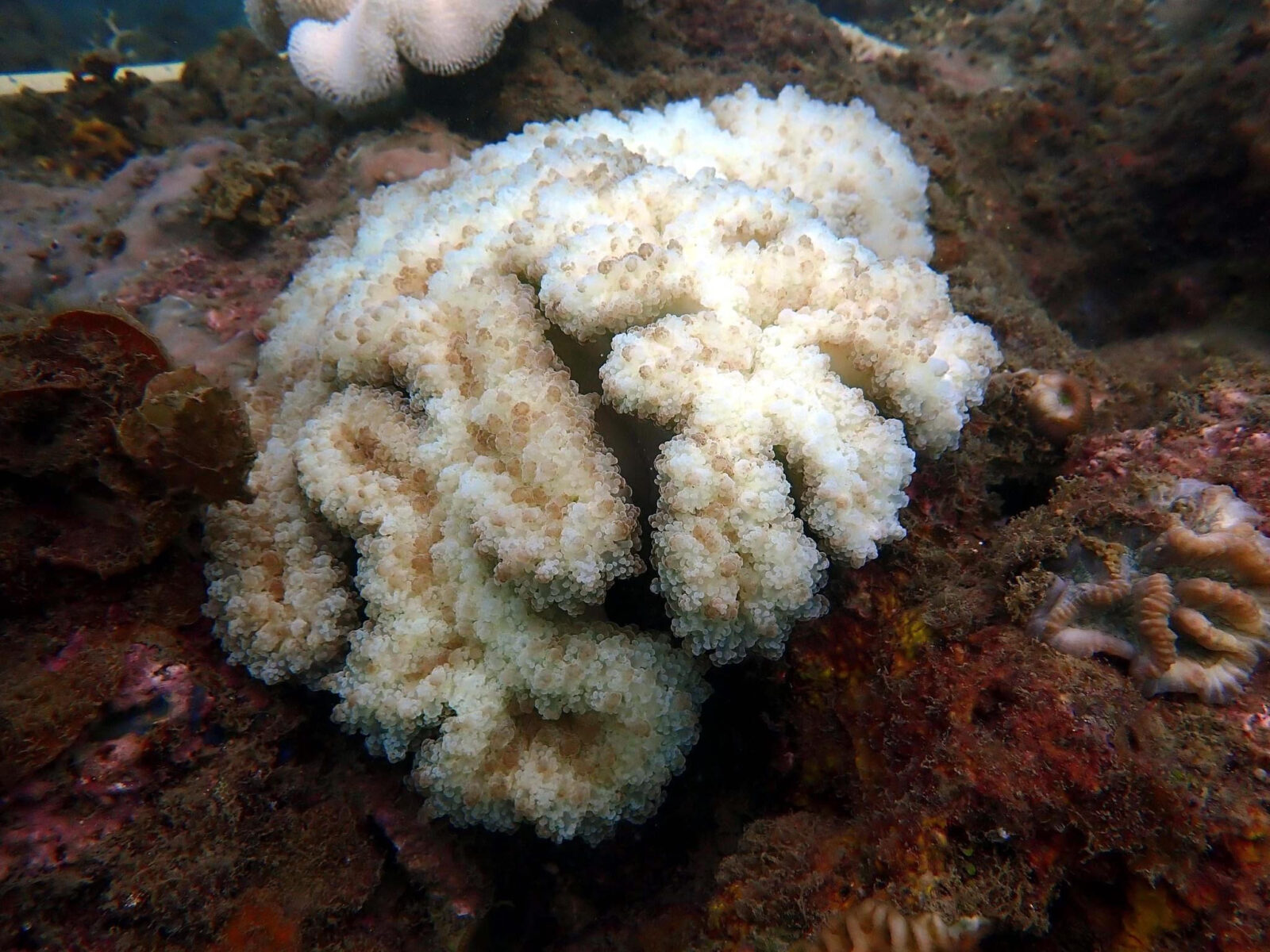Corals are dying due to extreme heat

Our coral reefs are experiencing severe bleaching due to prolonged exposure to extreme heat, leading to the death of corals. The recent coral bleaching event, reported by scuba divers and researchers a few weeks ago and continuing today, is a concerning issue that is impacting our precious marine ecosystems.
Situated at the heart of the coral triangle, our country boasts some of the most diverse coral species and extensive coral reefs in the world. These reefs not only provide a habitat for a multitude of fish species but also play a crucial role in supporting our food supply, as we rely on them for a significant portion of the fish we consume.
Our reefs play a vital role in contributing significant revenue to our economy. A study conducted by Tamayo and colleagues and published in the 2017 Ecological Economics journal under the title “National Estimates of Values of Philippine Reefs’ Ecosystem Services” revealed that the economic value of Philippine reefs’ ecosystem services amounts to US$4 billion annually or UA$140,000 per square kilometer per year.
Currently, our measurements primarily focus on revenues generated from direct uses like fisheries and tourism, overlooking the untapped potential of reefs as sources of compounds with medicinal value. To harness this potential, it is essential to increase funding for marine biotechnology research, particularly at esteemed institutions such as the University of the Philippines Marine Science Institute (UP MSI). Additionally, the indirect value provided by reefs, such as coastal protection from storm surges, is often undervalued in current assessments.
From a historical and evolutionary standpoint, our coral reefs result from a speciation process that took place under unique conditions that are no longer present. The Philippines is recognized as the epicenter for the origin of many marine organisms due to these conditions. Should these species be lost, the potential implications could be the permanent loss of these species or the need for millions of years for a similar process to unfold under different circumstances, possibly leading to a distinct assortment of species.
Unfortunately, the increasing global temperatures are putting our corals at risk of bleaching events that are becoming more frequent. If this trend continues, there is a possibility that coral reefs, which have existed for millions of years, may be decimated within this century. The rapid rise in ocean temperatures, largely attributed to human activities, is outpacing the ability of corals to adapt and survive.
Molecular tools
As a coral reef ecologist, I struggle to envision a future where corals continue to thrive in their current state. The looming loss of these vital ecosystems poses a significant threat to our subsistence fisheries and the survival of the fish species that depend on coral habitats.
While addressing global warming requires drastic measures like reducing carbon emissions, there is also hope offered by alternative approaches using molecular tools. One promising technique involves transferring heat-resistant genes from certain corals to others through genetic modification, potentially enhancing their resilience to escalating temperatures.
Collaborative research on heat-tolerant transgenic corals is currently underway between the University of North Carolina in Wilmington and the University of the Philippines Marine Science Institute, funded by a grant from the Coral Research & Development Accelerator Platform (CORDAP). Established in 2020, CORDAP is a G20 initiative aimed at expediting research and development efforts to protect the world’s corals. CORDAP stands out as the only international organization entirely devoted to supporting global research and development for tropical and cold-water coral restoration and conservation.
Ethical implications
However, the ethical and ecological implications of such interventions are complex and warrant careful consideration. Just as there are concerns surrounding genetically modified crops in agriculture, the deployment of transgenic corals raises questions about unforeseen consequences on marine ecosystems.
Ultimately, the decision on whether to utilize genetic engineering to save our coral reefs requires a balanced assessment of the risks and benefits involved. As we navigate the challenges posed by climate change, it becomes imperative to explore innovative solutions while safeguarding the delicate balance of our marine environments. You can find more information about the recent coral bleaching event on the Philippine Coral Bleaching Watch Facebook page.
Dr. Michael P. Atrigenio is an Assistant Professor at the Marine Science Institute of the University of the Philippines Diliman and the program head of the Professional Masters in Tropical Marine Ecosystems Management Program. He is also the President of the Marine Environment and Resources Foundation.

















